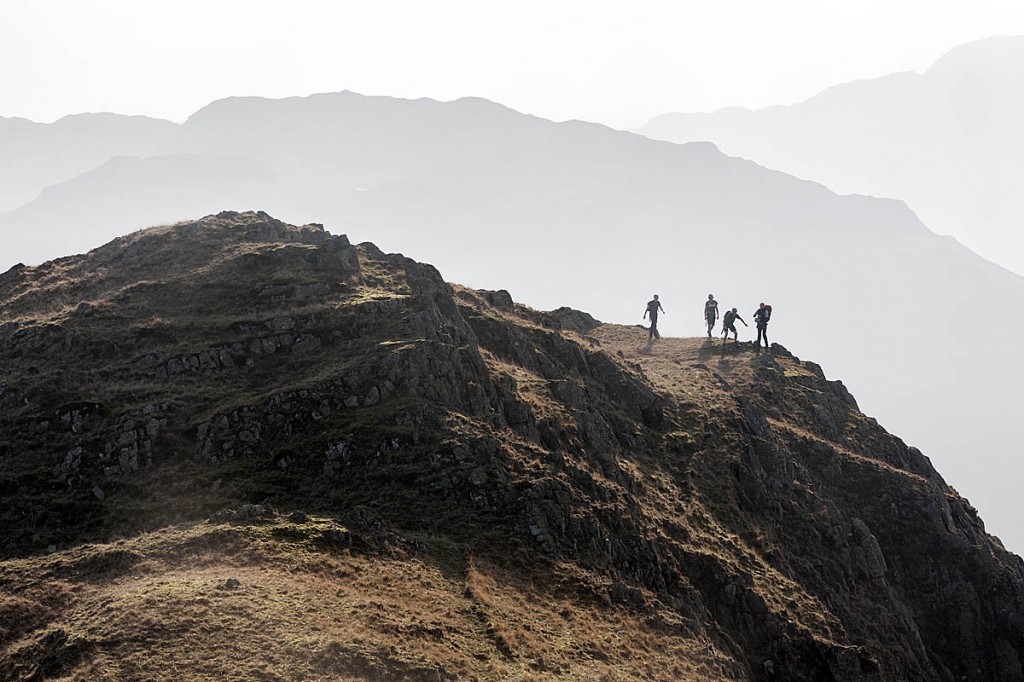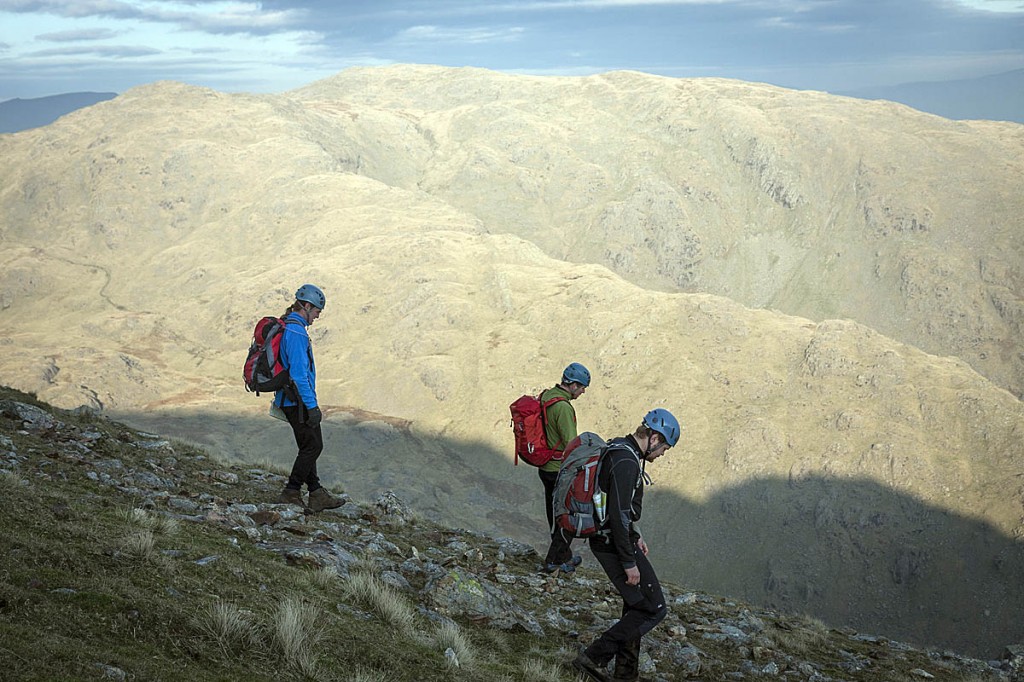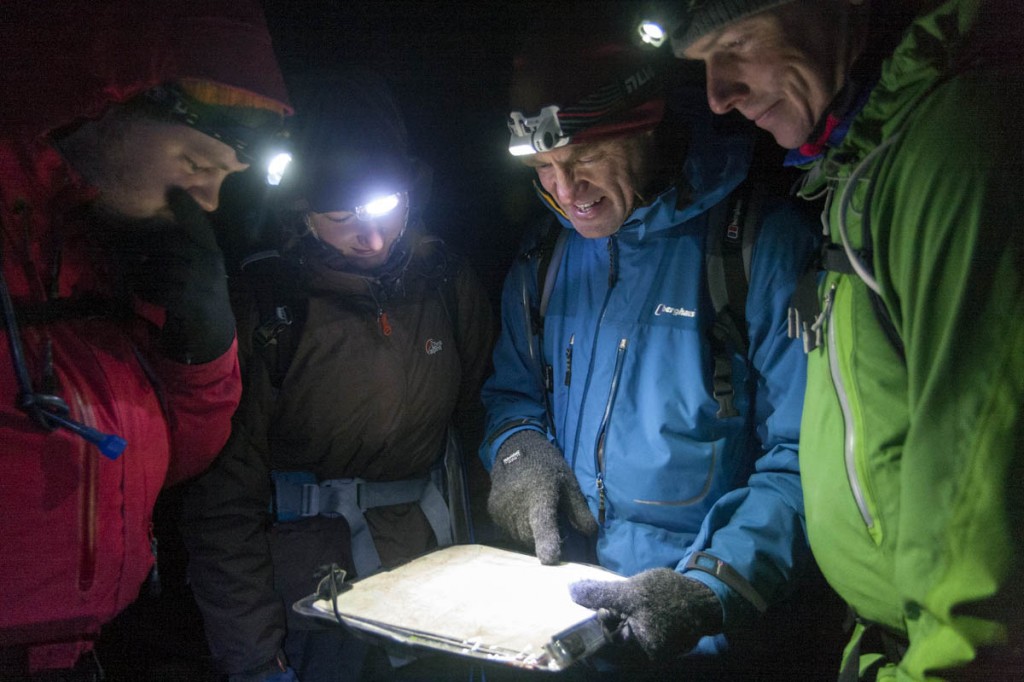A study by a British Mountain Guide has estimated the loss in earnings of UK outdoor professionals because of the coronavirus pandemic at £58.8m.
Calum Muskett surveyed members of four mountaineering associations to gauge the effect of governments’ restrictions on those who make their living from mountain activities.
He said the outlook for mountain professionals is bleak.
The 873 people who responded were members of the Mountain Training Association; Association of Mountain Instructors; British Association of International Mountain Leaders and British Mountain Guides. Between them, the groups have more than 7,000 members.
The biggest number of those who completed the survey were self-employed, though there were significant numbers of employees, plus more than a hundred who were a mixture of both employee and self-employed. Many were owners of small limited companies.
A large number of respondents are not eligible for the UK Chancellor’s various schemes to help people suffering financial loss during the crisis. The group suffering the worst losses were least likely to be able to apply for government help.
The professionals were asked to estimate the loss of earnings over the main six-month season this year, compared to the last full year for which figures were available, 2018-19. Tellingly, the amounts confirmed that the instructing in the outdoors is a relatively low-paid profession, with the average earnings of respondents in the quoted year £16,745.
The highest qualified, Mountain Guides, had the highest earnings, more than £34,000, from their work in the European Alps and greater ranges. Lowest earnings were MTA members, at less than £15,000. Many of those work part-time and voluntarily from time to time.
The average loss of earnings across the four association members was more than £10,000, or 60 per cent of income.
Muskett said in his report: “The worst affected groups by employment status are those who are self-employed and also owners of limited companies, who proportionately see a mean loss of 74 per cent of income and a median loss of 68 per cent.
“They also see the highest financial loss of earnings with a median loss of income at £13,000. The self-employed are the next worst affected group with a mean loss of earnings at 65 per cent and a median at 66 per cent. The median loss for self-employed workers is £8,500.
“It is noteworthy that owners of limited companies who are also self-employed, while seeing the highest financial loss, are also least likely to benefit from UK government aid as of announcements up to 1 April.
“The second-worst affected group of self-employed workers, while proportionately seeing a large drop in income when compared to 2018-19, will be more likely to benefit from government aid in terms of self-employed benefits.
“The worst affected groups by association are the MTA who see the biggest proportional loss of income at 67 per cent while also having the smallest median income at £12,000 in the 2018-19 tax year. Members of the BMG have seen the biggest financial impact with a median loss of income of £20,000 which is a 62 per cent loss of earnings when compared with the 2018-19 tax year.”
The total loss of earnings estimated across the four groups is almost £60m.
The study’s author said: “It is clear that members of all four associations will be hugely affected by the containment measures currently in place.
“The industry will be disproportionately affected by the timing of this pandemic, as reflected by the proportion of annual income lost, due to the nature of seasonal work in the industry.
“Further, an estimated £17.1 million in non-refundable expenses are likely to be spent over this period to maintain insurance policies, pay for accommodation and travel not used, pay staff to honour terminated work contracts and other miscellaneous expenses.
“While some insurers and associations are allowing for a break in contract while work is untenable, many are not, and limited companies that have refunded clients due to the Package and Linked Travel Regulations 2018 and also honoured guiding contracts have faced a huge financial hit due to a lack of contingency planning for a pandemic in the industry.
“With 66 per cent of respondents self-employed and only 10 per cent of all respondents having an alternative career that will fully support them during this crisis, many members will be duly waiting for the HMRC to contact them with regards to taxable grants worth up to 80 per cent of their average monthly profits.
“These 80 per cent grants, due to the seasonality of work, will likely fall far short of the income the professional mountaineering community would otherwise earn during this period. Association members who have set up within the previous three tax years will not meet eligibility criteria and owners of limited companies, who may employ themselves at the minimum rate as an employee, will also receive no financial support from the government other than through the Universal Credit system.
“Limited companies that are not bricks and mortar will also fail to qualify for the government’s £10,000 business grant.
“The picture across the professional mountaineering community is currently bleak. While employees and many sole traders will be eligible for government grants, a large proportion of the membership will find that they do not qualify for any income support other than Universal Credit.
“The current crisis is likely to be the hardest financial hit to individuals working in the outdoor industry since the Second World War, surpassing that of the Foot and Mouth epidemic of 2001 and the global financial recession of 2007-8. It is, unfortunately, very likely that many outdoor businesses will be bankrupt by the end of 2020 and sooner.”
A link to the full survey can be found on the Mountain Training website.



Langdale Pike
06 April 2020Sadly this study, which could have been worthwhile, is instead flawed by not being representative of mountain professionals. The nature of the questions meant that a large number of the target participants were unable (or unwilling?) to respond. I was invited to participate, but found the narrow definitions used for employment status did not permitme to complete the survey. Consequently my, rather limited, losses could not be recorded. I'm not alone. Even amongst the professional mountaineering associations, BMG, AMI & BAIML, only about a quarter to a third of their members responded. In no way can this study be considered to offer anything like a full picture of the effects of Covid19 on the outdoor industry. My suspicion is that the effect of this is to skew the results to appear worse than they in fact are. While I have every sympathy for those who are struggling at the moment, whatever their occupation (or none) we need to be honest about what's really happening, rather than extrapolating results from a biased sample.
Fair play to Calum for trying, but he's a much better mountaineer than a statistician!